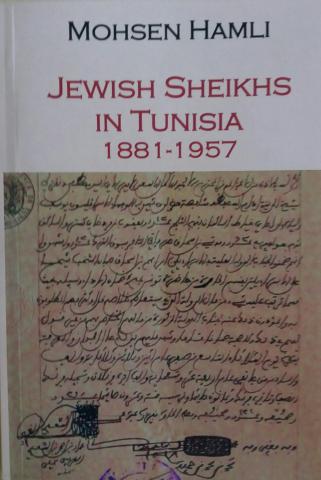
Jewish Sheikhs in Tunisia 1881-1957
Highly trusted, the Caïds of Israelites in Tunisia had always been the beys’ chief treasurers or tax collectors. But the 13 July 1888 decree (under French Protectorate) ended the secular function of the Caïd of Israelites and grouped the Jewish community under a Charity Committee (Fr. Comité de Bienfaisance) run by the Grand Rabbi of Tunisia. The previous civil function of the Sheikhs or Caïds of Isrealites (providing birth certificates, reporting about the citizens, collecting tax, etc.) was relegated to a local Sheikh or Muharrak chosen and monitored by the provincial governor (or Caïd). The existence of “ethnic” Sheikhdoms in Tunis and Djerba, and the form of decentralization the 1888 decree brought, drove the Jews, in various parts of the country, to seek the appointment of Israelite Sheikhs to serve them. A coreligionist Sheikh in their ‘hara’ or district would serve them well and spare them the trouble to travel to Tunis to plead a case or seek support. The idea did not displease the Beys as it provided for more well-backed regional Sheikhs or “Caïds of Israelites” or tax agents who could monitor their coreligionists in the best way possible.
Irrespective of their administrative status (official, semi-offical, or unofficial) or appellation (Caïd, Sheikh, Kebir, Bash-Muharrak, Muharrak, or Tax-Collector), of the 57 Jewish Sheikhs having been chosen by the Jewish notables to serve their coreligionists 21 resigned when they realized that the pressure on them or on their coreligionists was about to go beyond a certain level of dignity, 20 were dismissed for ‘insolence’ often when their resignations were refused, 5 died in office (ranging from a few months after one’s appointment to 37 years in office), and 11 were relieved of their function and conferred the title of Honorary Sheikh when ethnic Sheikhdoms were abolished in Aug. 1957.
